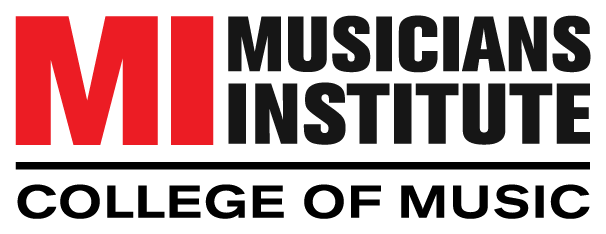FINANCIAL AID
Covering the cost of education can be difficult, from tuition to class materials and supplies to everyday living expenses. MI is committed to helping students with every available financial aid opportunity. The following tabs will assist you with estimating costs and provide information on private and federal financial assistance options.
GENERAL REQUIREMENTS
What are the general requirements for receiving financial aid? There are several requirements for you to receive federal or state financial aid. A few of the main ones include:
- Valid Social Security Number (federal aid)
- U.S. citizenship or permanent resident status (federal aid)
- High school diploma or equivalent
- Males between the ages of 18 and 26 must be registered with Selective Service
- Maintain satisfactory academic progress while attending MI
- Satisfactory repayment status of prior Federal student loans
- Satisfactory payment arrangements of prior Federal grant overpayments
- Enrolled in an eligible program of study
-
COSTS
How is the Cost of Attendance calculated? The Cost of Attendance is an estimate of expenses related to a program of study that includes tuition and fees, books and supplies, housing, personal and transportation costs.
Charges for tuition and fees can be found in the Tuition & Fees section of the current MI catalog. Living expenses are based on an annual budget determined by the California Student Aid Commission.
The cost of living while attending MI varies with each student’s personal needs. Below are the maximum living expense budgets per month for the 2016-2017 academic year, as prescribed the California Student Aid Commission, based on average costs statewide.
To arrive at a total cost for your program, multiply the monthly costs by the number of months in that program (Example, AA Degree = 18 months).
Student living at home with parents (per month):
Tuition varies by program
- Books & Supplies: $206
- Food & Housing: $583
- Transportation: $122
- Personal/Miscellaneous: $364
Total (not including tuition): $1275
Student living off campus (per month):
Tuition varies by program
- Books & Supplies: $206
- Food & Housing: $1477
- Transportation: $137
- Personal/Miscellaneous: $334
Total (not including tuition): $2154
-
LOANS
How is financial aid funding disbursed? Once you’re financial aid file is complete, the financial aid funds that you have qualified for will be disbursed quarterly at the start of the each term. The first disbursement is received during the first quarter of attendance, and subsequent disbursements are received in following quarters. Funds from the various financial aid programs are not always disbursed in the same way or at the same time. Government sponsored financial aid funds are sent to the school electronically. Students will be notified by email or regular mail of disbursements made to their MI tuition account. Once your tuition balance has been paid in full, any remaining disbursements that create a credit balance on your account will be disbursed to you for other school-related costs.
Note: All loans must be repaid. Repayment terms vary according to each specific loan type and amount. Loan repayment is a legal obligation and failure to repay will have serious negative effects on your future credit rating and seriously compromise your ability to continue to borrow.
Federal Stafford Loan: This low-interest loan is available for students with or without demonstrated financial need at all types of colleges.
To receive a Federal Direct Stafford loan, you must be enrolled at least half time (as determined by your school). There are two kinds of Stafford Loans:
Subsidized Stafford Loans: The Subsidized Stafford loan program is a need-based program that requires an EFC that is less than the student’s cost of attendance minus other financial aid. The federal government pays the interest on this loan while you’re in school and throughout the six month grace period after you graduate, leave school or enroll less than half time. Repayment of this loan begins after the completion of the six month grace period.
Unsubsidized Stafford Loans: For all eligible students, regardless of income or assets; demonstrating financial need is not required. Interest accrues on this loan but can be deferred while in school at least half time. The deferred interest will be added to the amount you borrowed, and future interest costs will be based on the higher loan amount. If you pay the interest while you’re in school, you’ll pay less interest in the long run. Unsubsidized Stafford loans may be available to help cover unmet financial need or replace some of your EFC.
Loan Limits: Stafford and PLUS loan amounts vary depending on your dependency status, your year in school and the cost of your program. You may not exceed the combined subsidized and unsubsidized annual loan limits.
If you are a dependent student you may qualify to borrow a maximum of $5,500 in Stafford loans, depending on your program, for your first academic year at Musicians Institute. If you are an independent student you may qualify to borrow a maximum of $9,500 depending on your program, per academic year. No more than $3,500 of this amount may be in subsidized Stafford loan.
When you enroll in your second or subsequent years, you may borrow at higher levels. Refer to the chart below. Dependent students whose parents are unable to obtain a Federal PLUS loan, may be eligible to borrow up to $9,500.00 in Stafford loans.
These loans must be repaid: Repayment is scheduled to begin six months after your last date of attendance with a minimum monthly payment of $50.00 per loan. Monthly payments may be higher depending on the amount borrowed. The required loan entrance interview will provide a summary of your estimated repayment amounts.
The interest rate is fixed at 3.4% for subsidized loans first disbursed between July 1, 2012 and June 30, 2013 and 6.8% for unsubsidized. Interest on the Subsidized Stafford loans will not accrue until you begin repayment. Interest will begin to accrue on the Unsubsidized Stafford loan shortly after your first disbursement. You are responsible for the accrued interest, from disbursement through repayment. The U.S. Department of Education will retain an origination fee of 1% from the gross amount borrowed.
Federal Parent PLUS Loan: Parents of dependent students may qualify to borrow a Federal Parent PLUS loan to help pay for their dependent child’s education expenses. If eligible, you may borrow up to the yearly cost of education less all other financial aid awarded to your dependent student. Plus loans are credit-based and require approval by the U.S. Department of Education. Parents must have a valid Social Security number to apply.
The Federal Parent PLUS loan must be repaid: Repayment on the Plus loan begins within 60 days of the final disbursement; however you may defer repayment during the student’s enrollment of a least half time and during the grace period. The amount of the monthly payment will vary with the amount borrowed, but will never be less than $50.00 per month. The interest rate is fixed at 7.9% and is charged from the date of the first disbursement until the loan is paid-in-full, including any deferment period.
-
GRANTS
Federal Pell Grant: if you are eligible, the Federal Pell Grant program is designed to provide access to the post-secondary institution of your choice. The Pell Grant is a gift program for undergraduate students and is not repaid. It is funded by the Federal government and administered by the U.S. Department of Education and the Financial Aid Office. The Department of Education uses the information provided on the Free Application for Federal Student Aid (FAFSA) to determine your eligibility.
Federal Supplemental Education Opportunity Grant (SEOG): The Federal SEOG is a gift program for undergraduate students with exceptional need that does not have to be repaid. It is funded by the federal government and administered by the U.S. Department of Education and the Financial Aid Office. Please note that these funds are limited and awards are offered on a first come, first served basis and may be subject to application deadlines scheduled by the Financial Aid Office.
-
SCHOLARSHIPS
Musicians Institute offers many different types of scholarships that can help students with tuition during their enrollment at MI.
Visit our Scholarships page to Start Saving!
-
VETERANS
FINANCIAL AID AVAILABLE FOR MILITARY PERSONNEL
MI offers a range of Federal Student Aid programs for active and veteran military personnel. The Financial Aid Department will help you to determine your eligibility.
FEDERAL PELL GRANT
For those who qualify, the Federal Pell Grant is financial aid that does not have to be repaid. It is awarded to undergraduate students.
FEDERAL SUPPLEMENTAL EDUCATION OPPORTUNITY GRANT (FSEOG)
For those who qualify, FSEOG is awarded to students with the highest need. Must be a Federal Pell Grant recipient, and funds depend on availability.
WILLIAM D. FORD FEDERAL DIRECT LOAN
For those who qualify, Direct Loans are available to students regardless of income. Federal student loans are required by law to provide a range of flexible repayment options, including, but not limited to: income-driven repayment and income-sensitive repayment plans; and loan forgiveness benefits, which other student loans are not required to provide.
- Subsidized Direct Loan is awarded to students based on need. The federal government pays the interest on behalf of the student while they are in school and grace periods.
- Unsubsidized Direct Loan is not based on need; the borrower is responsible for all accrued interest for the life of the loan.
VETERANS’ EDUCATION BENEFITS INCLUDE:
- Post 9/11 GI Bill® (Chapter 33)
- Yellow Ribbon Program – Unlimited (for those who qualify)
- Montgomery GI Bill®-Active Duty (MGIB-AD/Chapter 30)
- Montgomery GI Bill®-Selective Reserve (MGIB-SR/Chapter 1606)
- Survivors’ and Dependents Educational Assistance Program (DEA/Chapter 35)
- Veterans Educational Assistance Program (VEAP/Chapter 32)
- Marine GYSGT John David Fry Scholarship (Fry Scholarship)
- Vocational Rehabilitation (Chapter 31)
- Tuition Assistance
FOR RESERVE MILITARY
Some mobilized reservists may be eligible for an extension of their benefits eligibility time period. The Department of Veterans Affairs has a website for returning Active Duty, National Guard and Reserve service members: www.oefoif.va.gov. See new information on military call-up or activation. Use the “Search” feature to see all questions and answers, or view benefit-specific questions.
-
POLICIES / FAFSA
For many students, applying for Financial Aid is an important step in preparing for school. The following pages will explain the various types of financial aid available, and should answer most of your questions.
Musicians Institute is an eligible institution under various federal and state financial aid programs to provide aid for U.S. citizens and permanent residents (certain MI programs are not eligible for government financial aid; confirm the status of your desired program with your Admissions Representative). Each type of aid has specific eligibility requirements. If you qualify, you may be eligible for one or more types of aid. However, it is important for you to know that financial aid does not usually cover all of your tuition costs.
If you are interested in applying for financial aid, please read this section thoroughly.
If you need additional information, just call us at 1-800-255-PLAY (US) or (323) 462-1384 (Local/International), or email us with your questions (Musicians Institute’s official financial aid school code is 015238).
When do I apply for financial aid? : Many Financial Aid programs are awarded on a first come, first serve bases. We recommend that you apply for financial aid at least three months before the start of classes if you plan to use financial aid to help cover your tuition costs. Please keep in mind that applying for financial aid is a complex process, which requires your utmost attention to details and deadlines. Once you apply for financial aid, be sure to respond immediately to any mailings or emails that you receive from the financial aid processor or the Financial Aid Office at MI.
How do I apply for financial aid? The financial aid application process is initiated by completing the Free Application for Federal Student Aid (FAFSA) online. When you have completed the FAFSA you will receive a Student Aid Report (SAR) via email.
Musicians Institute’s financial aid school code is 015238.
Financial Aid Process:
1. Complete the FAFSA: You (and your parents) submit the FAFSA online to the federal processor. FAFSA Welcome Letter
2. Submit an Application to MI: The financial aid office is unable to process your FAFSA until you have submitted your application.
3. SAR: The Student Aid Report (SAR) with your calculated Expected Family Contribution (EFC) is generated from your information collected on the FAFSA. You and Musicians Institute will receive the SAR data. If you have submitted the FAFSA online and provided a valid email address, you and MI will receive your SAR data in 3-5 days.
4. Verification: If you are selected for a process called “verification,” you must provide additional documents, such as a student and/or parent Federal tax information, verification of untaxed income, or other documents required to determine eligibility. The financial aid office will contact you to let you know what is needed.
5. Award Notification: After you have submitted the Application for Admission, the Financial Aid Office will mail your award notification approximately 3-6 weeks after receipt of your SAR (depending on the time of year and application volume).
6. Loan Entrance and Master Promissory Note: Students that borrow from the Federal direct loan program must complete a mandatory entrance counseling session offered by the U.S. Department of Education. In addition, first time borrowers will be required to complete an electronic Federal Direct Loan Master Promissory Note using the automated process on the studentloans.gov website.
7. Disbursement: Financial aid is disbursed quarterly. Funds from various programs are not always disbursed in the same way or at the same time. You will be notified of availability via email or by U.S. Postal Service.
How much aid am I eligible to receive: Your eligibility for the need-based financial aid programs is determined by subtracting your Expected Family Contribution (EFC) as indicated on your Student Aid Report (SAR) from the cost of attendance for your course of study.
What is Satisfactory Academic Progress (SAP):
Academic standards, both qualitative and quantitative, must be met to continue receiving financial aid. Please review the SAP section of the catalog for a complete detailed description of SAP.
Failure to meet the standards for satisfactory academic progress may result in the termination of any type of federal or state aid. If you are declared ineligible for academic reasons, you may appeal the ruling. Requests for appeal will be reviewed on a case-by-case basis by the MI Education and Financial Aid staff. You must also meet with an Academic Advisor to establish and academic plan that ensures your successful completion of the program of study. Accepted appeals will result in a reestablishment of your financial aid status.
Please note: if you fail to meet the requirements specified in an academic plan, you will no longer be eligible for student financial assistance and will be withdrawn from MI.
Financial Aid Policies
Satisfactory Academic Progress (SAP): Federal regulations require all institutes that participate in the Title IV aid programs to define and monitor satisfactory academic progress (SAP) for all financial aid recipients. The standards must meet all federal requirements and be equal to or more stringent than the SAP standards for non-financial aid recipients. Students are required to meet both qualitative and quantitative academic standards while attending Musicians Institute. This policy insures that students are progressing through their programs of study and identifies students who may be at risk of failing.
SAP Defined: Students with a cumulative Grade Point Average (GPA) less than 2.0 in any program of study or students that have completed less than 66.66% of their cumulative completed units in any program of study have not met the minimum requirements for SAP for that program.
SAP Warning Status: Students that have not met SAP for one quarter will be sent a SAP warning letter. Students determined to be in SAP warning status are encouraged to meet with a Student Affairs Counselor to request free tutoring services offered on campus.
SAP Probation Status: Students that fail to meet SAP for two consecutive quarters will be sent a SAP Probation Letter. Students in SAP probation status will be ineligible for financial aid until the SAP probationary status is appealed and the appeal is approved. Financial aid recipients appealing the SAP probation decision must complete a SAP appeal form and meet with an Academic Advisor to complete an academic plan. The completed SAP appeal form and academic plan must be returned to the Financial Aid Office for review. Approved appeals will result in a reinstatement of the student’s financial aid eligibility. Students that are not receiving financial aid will be contacted by the Registrar Services office to complete both an appeal form and academic plan.
SAP Withdrawal
Students that fail to meet the requirements specified in their academic plan will no longer be eligible for student financial assistance and will be withdrawn from MI.
Refund Policy for Financial Aid Students
If you withdraw from school and you have received financial aid, the Financial Aid Office will complete a required calculation to determine if you are eligible for a refund or if any of the financial aid you received must be returned to the original funding source. This calculation is based on the amount of the financial aid you have earned at the point of withdrawal.
Up through the 60% point in each payment period or quarter, a pro rata schedule (minus any registration fees, non-refundable fees and or charges for unreturned equipment, materials or textbooks) is used to determine how much funding you have earned. Unearned funds must be returned to the funding source. If the calculation determines that MI must return a portion of the federal funds you received, you may owe a tuition balance for the portion of funds returned.
After the 60% point in the payment period or quarter, you have earned 100% of the federal financial aid and no funding must be returned.
To initiate the withdrawal process you must provide written notice to Student Affairs by the end of business day Friday of week 6.
Any monies owed to Musicians Institute, Inc. are due and payable on the date of the withdrawal.
An official withdrawal is effective on the date it is received by Student Affairs, whether personally delivered or postmarked (if mailed).
Unofficial withdrawals will be determined when you have missed more than 3 weeks of classroom attendance and have not responded to phone or email contact. Your last date of recorded attendance in class will be used to determine the date of withdrawal.
Refunds are calculated based on the last recorded date of attendance (either classroom attendance or scan-in). The calculation is based on the length of the completed portion of the quarter relative to its total length (10 weeks of instruction effective the official start date of the term). No refunds will be issued after week 6.
”Return of Title IV” worksheets are available upon request from the Financial Aid Office.
Accepting a loan means accepting the responsibility for repaying the money you borrow. You will sign a promissory note, a legal contract between you and your lender, in which you promise to repay the loan and agree to the loan’s terms and conditions. Before signing, be sure you understand all of your rights and responsibilities.
Rights: If you obtain a federal student aid loan, you have certain rights. Some of your rights are listed below:
- You have the right to an official award notification describing all funding sources available to you.
- You have the right to decline any or all forms of student aid funding .
- You have the right receive student loan disbursement notifications and to decline all student aid disbursements.
- If you are attending school at least half-time, you have a set period of time after you graduate, leave school or drop below half-time status before you must begin repayment on a Stafford loan. This period of time is called a grace period.
- You will receive a grace period of six months before your Stafford loan repayment period begins.
- You must be given a student loan repayment schedule, which lets you know when your first payment is due, and the number, frequency and amount of all payments.
- You must be given a list of deferment and cancellation conditions.
Entrance Interview: Before the first loan may be disbursed, you must receive the following information in an entrance interview:
- A disclosure that includes the full amount of the loan, the current interest rate and fees.
- The date you must begin repayment.
- The effect borrowing will have on your eligibility for other types of financial aid.
- The complete list of any charges you must pay (loan fees) and information on how those charges are collected.
- The yearly and total amounts you can borrow, and information on how those charges are collected.
- The yearly and total amounts you can borrow, and the minimum and maximum repayment periods.
- The current description of loans you owe your school and or lender, an estimate of what your total debt will be and what your monthly payments will be.
- An explanation of default and its consequences.
- An explanation of options for prepaying your loan and for taking advantage of a consolidation loan.
Exit Interview: Before you leave school, you must receive the following information about your loan or loans in an exit interview:
- A current description of your loans, including average anticipated monthly payment.
- The amount of your total dept (principal and interest), your current interest rate and the total current interest charges on your loan.
- The name of the organization that holds your loan, where you send your payments and where to write, if you have questions about your loan.
- An explanation of the fees you might be charged during the repayment period such as late charges and collection or litigation costs, if you are delinquent or in default.
- A description of deferment and cancellation provisions.
- A description of repayment options such as prepayment, refinancing and consolidation loans.
- Debt management advice
- Notification that you must provide your expected permanent address, the name and address of your expected employer, the address of your next-of-kin, and any corrections to the school’s records concerning your name, Social Security Number, references and driver’s license number.
Responsibilities: you also have certain responsibilities. Here are some of them:
- When you sign a promissory note, you are agreeing to repay according to the terms of the note. This note is a binding legal document. This commitment to repay means that you will have to pay back the loan, even if you don’t complete your education, aren’t able to get a job after you complete the program, or you are dissatisfied with, or do not receive the education you paid for. If you do not pay back your loan on time or according to the terms in your promissory note, you may go into default, which has very serious consequences.
- You must make payments on your loan even if you do not receive a bill. Billing statements and coupon books are sent to you as a convenience, but not receiving them does not relieve you of your obligation to make payments.
- Even though you may have applied for a deferment, you still must continue to make payments until your deferment is processed. If you do not, you may end up in default. You should keep a copy of any deferment request form you may have and you should document all contacts with the organization that holds your loan.
- You must notify the organization that holds your loan if you graduate, withdraw from school, or drop below half-time status, change your name, address, or Social Security Number, or transfer to another school.
- Before you receive your first disbursement, you must attend an entrance interview. Before you leave school, you must attend an exit interview (see above).
There are simple steps you can take to keep control of your student loan debt and of your financial life, both in-school and after-school. MI offers individual loan counseling to all current and former students.
For additional information regarding your loans email the financial aid office at [email protected].
Financial Aid Staff Code of Conduct: The primary goal of the MI Financial Aid Office staff is to help students achieve their educational potential by providing appropriate financial resources.
-
FERPA
Musicians Institute maintains student records and privacy in accordance with the Family Educational Rights and Privacy Act (FERPA). The Family Educational Rights and Privacy Act set forth requirements regarding the privacy of student records. FERPA protects students’ rights to inspect and review their education records, to request to amend their educational records, and to limit disclosure of personally identifiable information contained in education records.
Student education records are defined as: records, files, documents and other materials that contain information directly related to a student and are maintained by the institution or by a party acting for the institution. Examples are education and finance records, such as report cards, transcripts, disciplinary records, contact and family information, class schedules, charges, payments and account balances.
Education records are NOT: sole possession records, law enforcement unit records, employment records, medical records, or post-attendance records.
The school MAY disclose information without student consent to the following:
- To school faculty, staff and administrators with a legitimate educational interest in the information.
- Parents of a dependent student (dependency status determined by Federal Student Aid regulations).
- In response to a request for directory information.
- To Federal, State and local education authorities involving an audit, evaluation or compliance with education programs.
- Agents acting on behalf of the school (i.e. National Student Clearinghouse).
- In connection with processing financial aid.
- Accrediting organizations.
- To comply with a judicial order or subpoena.
- In connection with a health or safety emergency if the information will assist in resolving the emergency.
All currently enrolled and former MI students, regardless of age, are protected under FERPA.
The “directory” information which schools MAY disclose, without consent include: Student’s name, address, telephone number, photograph, date and place of birth, major field of study, grade level, and participation in officially recognized activities and sports, electronic mail address, degrees, honors and awards received, and dates of attendance. However, schools must tell students about directory information and allow them a reasonable amount of time to request that the school not give out directory information about them.
To opt out, you must complete the “Directory Opt Out” form and submit it to the Registrar’s Office no later than Friday, Week 2 of the quarter in which you are enrolled.Students also may give Designated Officials at MI permission to speak freely regarding their academic records, progress, attendance, financial aid, student account, tax information, etc. to a parent, guardian, or anyone else, by listing their names and relationship. Complete the Your Rights under FERPA Authorization Form and submit it to the Registrar’s Office.
For further information about FERPA, refer to the back of the authorization form of the Course Catalog.
-
GRADUATION RATE
MI is committed to providing current and prospective students as well as the campus community with full disclosure of all consumer information as required by federal regulations. The laws are intended to allow students the opportunity to make fully informed choices about the institute they wish to attend. The federal College Navigator web site sources the U.S.
Department of Education’s vast database of provide information on individual schools in several categories, such as general information, tuition, fees and estimated student expenses, admissions, programs, majors and accreditation.
For example, you may like to know more about the overall graduation rate, also known as the Integrated Postsecondary Education Data System (IPEDS). It tracks the progress of students who began their studies as full-time, first-time degree- or certificate-seeking students to see if they complete a degree or other award such as a certificate within 150% of “normal time” for completing the program in which they are enrolled.
View Musicians Institute’s data at College Navigator.
-
STUDENT TUITION RECOVERY FUND
The Student Tuition Recovery Fund (STRF) is a fund administered by the Bureau for Private Postsecondary Education (Bureau) that relieves or mitigates economic loss suffered by a student while enrolled in a qualifying institution – generally, one that is approved or registered by the Bureau.
The Student Tuition Recovery Fund (STRF) assessment rate for enrollment agreements signed on or after April 1, 2022, is $2.50 per $1000 of institutional charges rounded to the nearest thousand dollars from each student.
You must pay the state‐imposed assessment for the Student Tuition Recovery Fund (STRF) if all of the following applies to you:
- You are a student in an educational program, who is a California resident, or are enrolled in a residency program, and prepay all or part of your tuition either by cash, guaranteed student loans, or personal loans, and your total charges are not paid by any third‐party payer such as an employer, government program or other payer unless you have a separate agreement to repay the third party.
- You are not eligible for protection from the STRF and you are not required to pay the STRF assessment if either of the following applies:
- You are not a California resident, or
- are not enrolled in a residency program, or
- Your total charges are paid by a third party, such as an employer, government program or other payer, and you have no separate agreement to repay the third party.
For complete information concerning the Student Tuition Recovery Fund, please go to: https://www.bppe.ca.gov/students/strf.shtml




